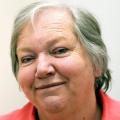
Can modern medicine take anything from health care in Roman Britin?
That is the question Dr Nick Summerton will be answering at the Senhouse Roman Museum this month.
Dr Summerton is an experienced writer and researcher with a professional background in general medical practice, public health, health policy, artificial intelligence, NHS and private practice, and as an academic with longstanding interests in Romano-British archaeology and Greco-Roman Medicine
He will discuss medicine and health care in Roman Britain
Finding ways to cope with illnesses and injuries have been constant concern throughout all of human history.
Written records together with archaeological finds from sites such as Alauna (Maryport) have painted a vivid picture of the medical care provided to both the military and the civilian inhabitants of Roman Britain.
By rigidly adopting a 21st Century view, it is all too easy to dismiss or denigrate aspects of ancient medicine and yet to overplay others significantly.
Questions asked and answered will include: Did any of the medical or surgical treatments being offered by the Greco-Roman healers work? Should we dismiss dream therapy or pilgrimages to healing sites - such as Bath or Coventina`s Well - as gimmicks?
In the Roman world what was the balance between prevention, treatment and hospital care? Are aqueducts, drains and bathhouses really a reflection of the Roman concern for public health?
And, crucially, can modern doctors learn anything from their Roman forbears about looking, listening, and speaking with patients?
These questions – and more besides – will be explored using practical sessions, interactive discussions, and lectures, in addition to an examination of key finds from Alauna (Maryport) and the surrounding area.
Medicine & Health Care in Roman Britain is on Wednesday, October, 19, .from 9.30am to 5pm
Tickets are £25 and can be booked by contacting the museum - 01900 816168



Comments: Our rules
We want our comments to be a lively and valuable part of our community - a place where readers can debate and engage with the most important local issues. The ability to comment on our stories is a privilege, not a right, however, and that privilege may be withdrawn if it is abused or misused.
Please report any comments that break our rules.
Read the rules here